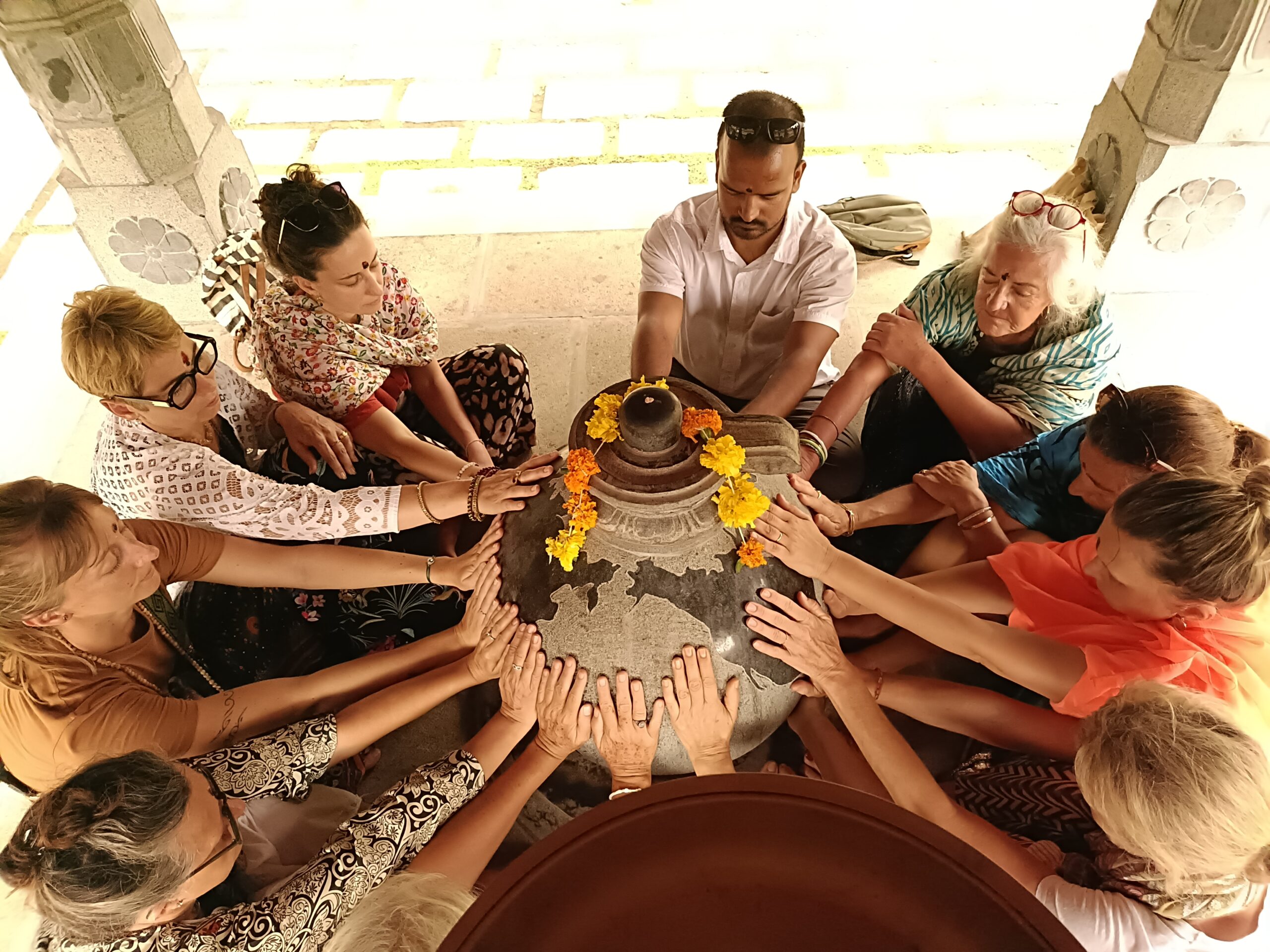It is the month that Shravan, also referred to as Sawan, holds a very special position in the hearts of a vast majority of Hindus all over the world. The month falls within the 5th month on the Hindu lunar calendar, which is typically between July and August. Shravan is considered to be the most holy month dedicated to Lord Shiva. It’s a month where spiritual fervour increases, the ceremonies become more intense as devotees perform rituals of worship such as fasting, prayer, and fasting.
Shravan isn’t only a time of year, but also is a journey of the spirit, during which believers seek to receive the blessings of Lord Shiva by sincerely worshipping, as well as meditation and penance. If it’s visiting temples or singing mantras, or keeping prayers on Monday (Somvar), it is important to understand that the spirit of Shravan lies in faith and complete surrender towards the Divine.
The Significance of Shravan Month
Shravan is derived from the Shravana Nakshatra (star) and appears prominent at the time when the moon is full (Purnima), which occurs in March. As per Hindu Scriptures, Shravan is regarded as so powerful that each day of this month is believed to have the ability to wash one’s sins away and shower divine grace on the person in particular if you are devoted to the god of Hinduism, Lord Shiva.
Mondays (Somvars) from Shravan are considered to be the most sacred days of the year. The devotees keep a strict fast and go to Shiva temples for offering honey, milk and bel patra (Bilva leaves) to the Shiva Linga. They symbolise purity and the devotion of devotees.
This holy month not only honours Lord Shiva but also Lord Vishnu, as well as Lord Hanuman and Goddess Parvati, along with Lord Kartikeya, making Shravan a multi-deity festival that is grounded in deep spiritual energy.
Why Do We Celebrate Shravan?
The Shravan festival is a tidal to the mythology of Shravan and has historical significance. The main motives for why the month is highly regarded:
1. Samudra Manthan (The Churning of the Ocean)
The most famous of the most popular myths that is connected with Shravan is that of the Samudra Manthan, or the Churning of the Cosmic Ocean. In the course of this cosmic event, gods (Devas) as well as demons (Asuras) created a churn in the ocean to acquire Amrit (nectar that grants immortality). The process was interrupted when Halahala, which is a poison that can kill, came out of the ocean in the hope of destroying the universe.
To protect the world to save the world, Lord Shiva was able to consume the poison and placed the poison in his throat. It turned blue as a result of its power, earning Him the title Neelkanth (the Blue-Throated God). As a sign of gratitude and respect for the gods Gods started offering holy water and herbs to Lord Shiva to start the practice that offering water offerings to the Shiva Linga at Shravan.
2. Blessings and Fulfilment of Wishes
It is believed that the worship of the god Shiva in Shravan will help worshippers receive the blessings of well-being, prosperity and prosperity. The women who are unmarried fast and pray for Shiva as well as Parvati to ensure they have a perfect relationship with their partner. Married women pray for blessings to ensure the longevity of their husbands and overall well-being.
3. Spiritual Growth and Inner Cleansing
Shravan is a period of determination, self-control and cleansing. Through fasting, the chanting of “Om Namah Shivaya,” and the reading of Shiva Purana, devotees spiritually become more aligned and free themselves of distracting material things.
The History and Cultural Practices of Shravan
The custom of celebrating Shravan has been handed down through the ages. The ancient texts, such as those of the Skanda Purana, Shiv Purana and the Vedas, all refer to Shravan’s significance. Different regional customs and stories are evolving, however, the central thread throughout India continues to be the reverence for Shiva.
Shravan Across India:
- North India: Fasts on every Monday. Kanwar Yatra performed by Kanwariyas (devotees who carry Ganga drinking water), Rudrabhishek, and reading of Shiva Chalisa are all common.
- Maharashtra: Also known as “Shravan Maas”, the days of Tuesdays and Mondays are important. Females perform Mangala Gauri puja to ensure prosperity and happiness for their marriages.
- South India: The month is connected to Naga Panchami (worship of the serpents), Varalakshmi Vratam, as well as rituals dedicated to Lord Murugan, as well as Lord Vishnu and Lord Vishnu.
- Nepal: Shravan, a festival in Nepal, is highly observed, with a particular focus on Pashupatinath Temple, where devotees all over the world gather to pray.
Important Festivals During Shravan Month
There are a variety of Hindu celebrations that fall in the Shravan month, which increases its spiritual vigour:
- Shravan Somvar Vrat: observed each Monday in honour of Lord Shiva.
- Nag Panchami: Devotees believe in serpent gods. They are believed to have a close connection with Shiva.
- Rakhi or Raksha Bandhan: A time to celebrate the bonds of friendship between sisters and brothers.
- Janmashtami: Lord Krishna’s birth is observed towards the close of Shravan.
- Hariyali Teej or Kajari Teej: Teej are important for newly married women as well as young girls.
Rituals and Fasting During Shravan
Shravan is famous for its strict fasting routines and practices, particularly on Mondays. The most popular practices for fasting are:
- Solah Solah Vrat (Sixteen Mondays Fast): A few devotees keep a fast on 16 consecutive Mondays that begin with Shravan to receive special blessings.
- Kanwar Yatra: Devotees known as Kanwariyas are those who carry the holy Ganga water that they offer the water to Shiva temples, particularly Kashi Vishwanath, as well as Baidyanath Dham.
- Restriction: The diet of many people is restricted from eating non-vegetarian meals, alcohol, onions, garlic, and even grains.
Rudrabhishek of Lord Shiva: Rudrabhishek is a special ceremony that involves the holy bathing of the Shiva Linga using honey, milk, water and ghee. Often, it is followed by chanting Vedic mantras
Spiritual and Health Benefits
Shravan isn’t only about religious rituals, it’s a time for holistic wellness:
-
- Detoxification: Fasting and a moderate vegetarian diet encourage the cleansing of your body.
- Meditation: The practice of meditation and mantra chanting can reduce anxiety and create a sense of calm.
- Social Harmony: Prayers for community Fairs, rituals, and prayers can bring people closer and build connections.
- Detoxification: Fasting and a moderate vegetarian diet encourage the cleansing of your body.
Conclusion
-
-
Shravan isn’t just an important month, it’s a time to celebrate dedication, faith and love. It is a chance to commune with the Divine, particularly Lord Shiva and contemplate spiritual growth. Even in a time when life is fast-paced, the practices and practices of the Shravan gurus encourage people to slow down, contemplate, ponder, and align our focus on nature as well as the cosmic.
When you pour sacred water over a Shiva Linga, or chant His name or participate in daily fasts, everything you do during Shravan helps you get closer to Shiva consciousness, the state of undiluted Being, peace and joy.
Let us celebrate this sacred month with hearts full of deep commitment. Har Har Mahadev
Did you even know?
- Shravan is the time that there is the Amarnath Yatra in Jammu & Kashmir is held.
- The chanting of “Om Namah Shivaya” 108 times a day during Shravan is believed to purify the soul and mind.
- Shravan is the time that there is the Amarnath Yatra in Jammu & Kashmir is held.
-










